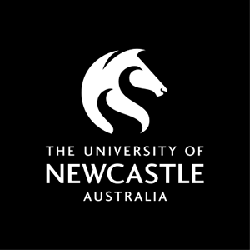About Bachelor Of Public And Community Health in University of Newcastle
What you will study
Globally, the most common health issues are preventable. Through this unique program, you’ll build knowledge around the determinants of health, key issues affecting the health of populations and develop skills to analyse health information, plan and manage programs that can improve the health of the population.
You’ll undertake research on disease patterns, explore best practice interventions, and deepen your understanding of public health policies.
Career opportunities
The need for additional members in the public health workforce continues to rise which means graduates in the field are highly sought after.
Upon completion of a Bachelor of Public and Community Health, graduates will have the skills and knowledge to work in a range of interdisciplinary roles in non-government organisations, primary health care organisations, Aboriginal health, local councils, public health and health promotion units.
Typical roles include:
- Health Educator
- Health Promotion Worker
- Public Health Program Manager
- Environmental Health Officer
- Community Development Worker
- Community Health Officer
- Project Officer
- Data scientist
- Health Administrator
Academic qualification equivalents
- Applicants must have passed All India Senior School Certificate (CBSE) with 13 points or from ISC with 83%
English language requirements (one of the below):
- IELTS : 6 With minimum of 6.0 in each band
- TOEFL : 60 Overall score between 60-78 with the following scores in each band-
- Reading= 13-18
- Listening= 12-19
- Speaking= 18-19
- Writing= 21-23
- PTE : 50 Overall score of 50-57
University of Newcastle Highlights
| University type |
Public |
| Rank |
207 in World |
| Intake type |
Semester based |
| Programs |
Over 180 |
| No. of Campuses |
5 |
| Applications accepted in |
January, February, May, June, July, August |
University of Newcastle The Average Tuition Fees And Other Expenses
- The tuition fee at the University of Newcastle differs depending upon the degree level and whether one is receiving commonwealth assistance, international education or studying part-time.
- Program cost for some popular undergraduate courses is given below-
| Program name |
Program cost |
| Bachelor in Business (Honors) |
30,090 AUD |
| Bachelor in Science (Honors) |
38,515 AUD |
| Bachelor in Law (Honors) |
30,290 AUD |
- Program cost for some popular graduate courses is stated below-
| Program name |
Program cost |
| Master of Business Administration (Global) |
29,770 AUD |
| Master of Business Administration (Global) / Master of Science (Data Analytics) |
32,635 AUD |
| Master of Law |
31,785 AUD |
Accommodation Cost
The institute provides its applicants with an option of choosing a mode of accommodation that suits their needs and requirements best. The cost of different types of accommodation available to aspirants seeking admission to UON is as follows:
| Type of Accommodation |
Cost in AUD (per week) |
| On-campus (catered) |
320 to 510 |
| On-campus (non-catered) |
175 to 385 |
| Hostels and Guesthouses |
90 to 150 |
| Homestay |
235 to 325 |
| Off-campus |
100 to 440 |
Other expenses
| Type of Expenses |
Cost in AUD (per week) |
| Groceries and Food |
80 to 280 |
| Public Transport |
15 to 55 |
| Entertainment |
80 to 150 |
| Gas and Electricity |
35 to 140 |
| Others |
200 to 400 |
Estimated overall expenditure of a year (excluding tuition fee): 20,290 AUD.
English Proficiency Test Scores For International Students
English Language Proficiency Test scores are a measure of the English Language fluency of the applicants. The University of Newcastle expects all students to fulfill these test score requirements, including students whose first language is English or have studied in an educational institution whose language of instruction is English for at least 4 years. These tests are conducted to provide a structural base so that there is no hindrance to cope with the syllabi.
| Test |
Minimum Scores |
| IELTS |
6.0 to 6.5 - Academic |
| TOEFL |
64 to 93 – IBT 500 - PB |
| CAE (Cambridge English: Advanced) |
52 |
| CPE (Cambridge English: Proficiency) |
N/A |
| IB (International Baccalaureate) -Standard Level |
4 |
| IB (International Baccalaureate) -Higher Level |
3 |
Note: These scores are course dependent and may vary from course to course and hence, students are advised to be well aware of the minimum score requirements.
